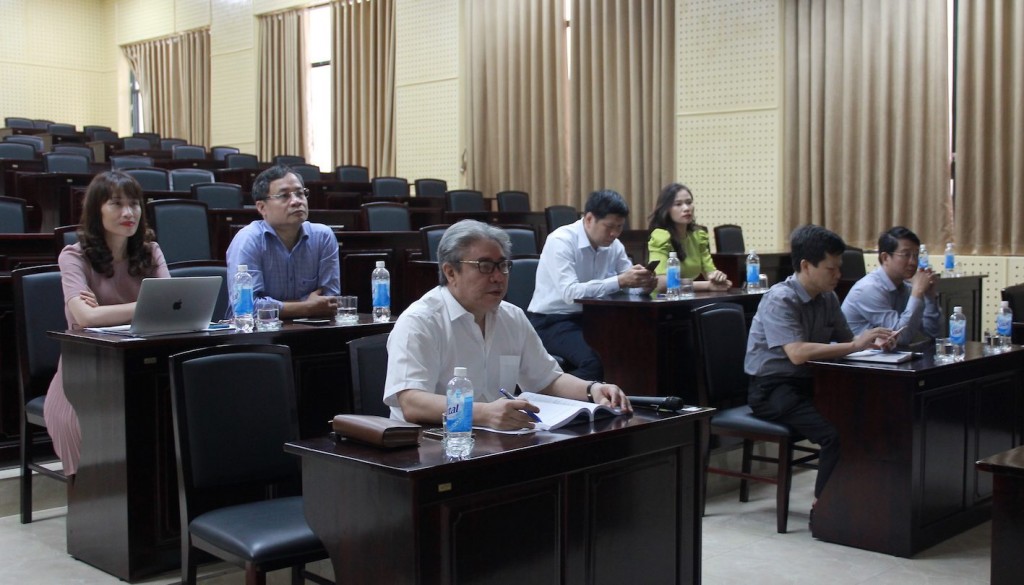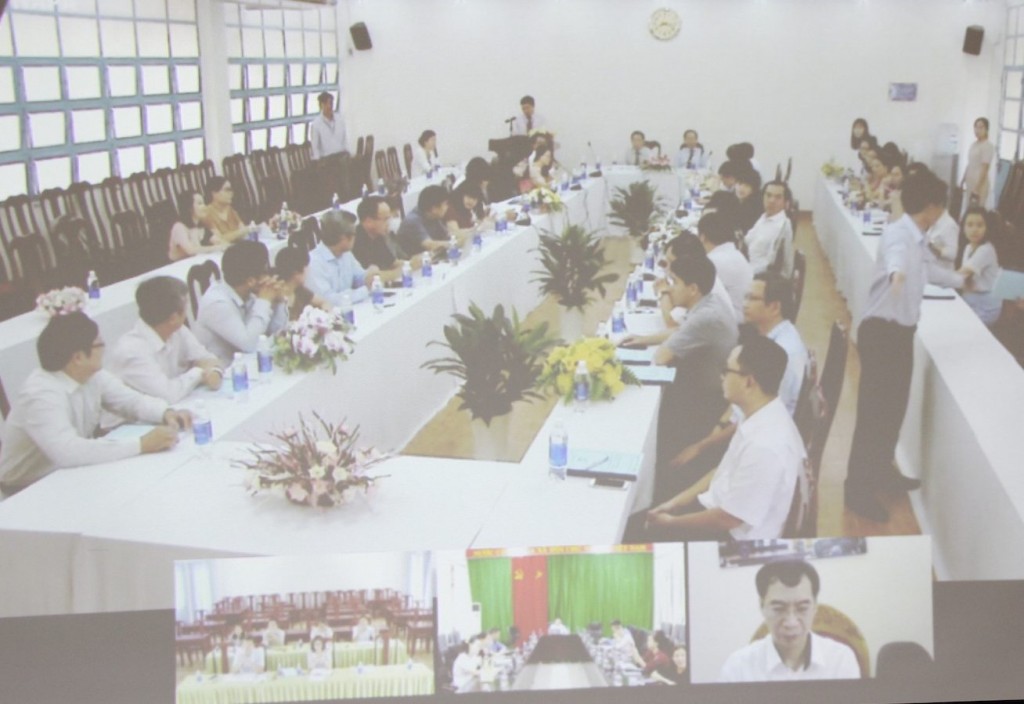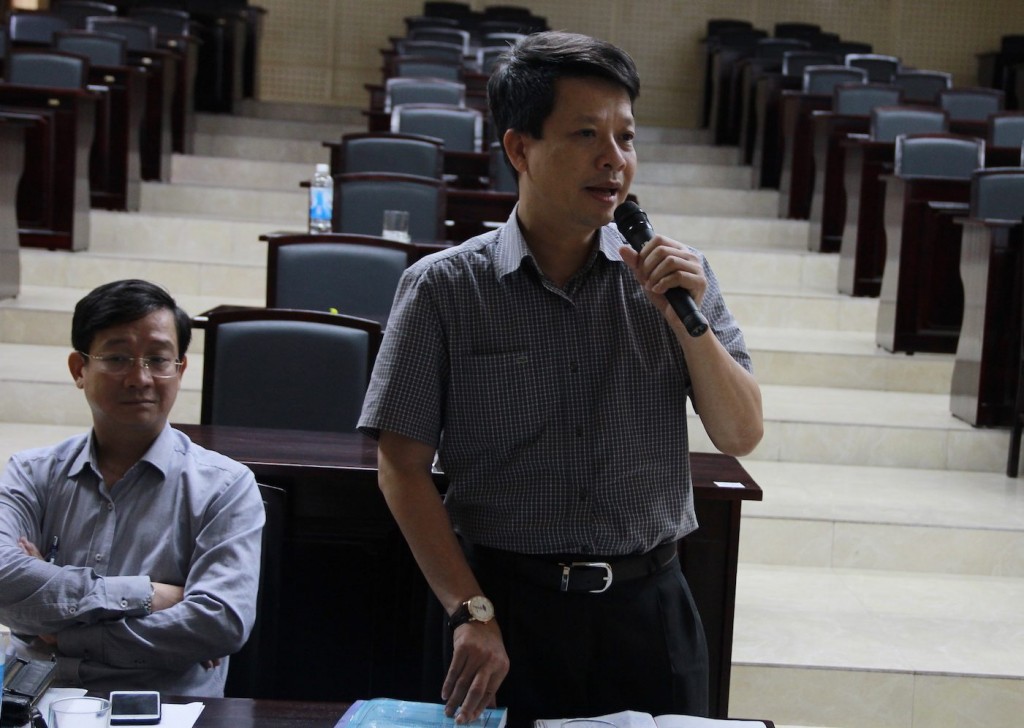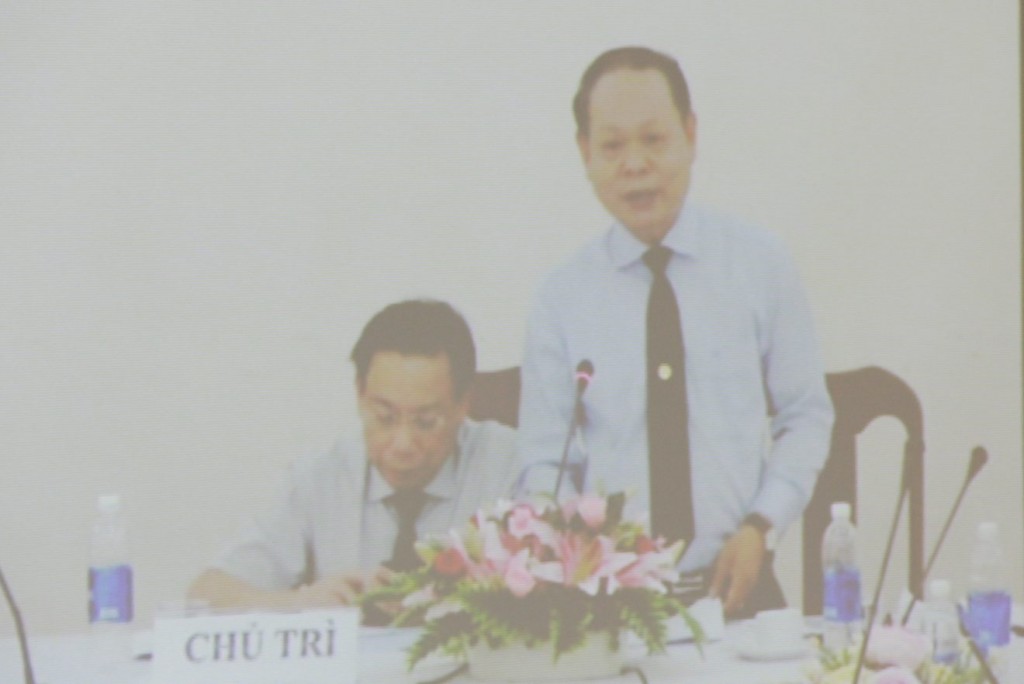Government Resolution 30c / NQ-CP on the State Administration Reform Master Program (PAR) for the period 2011 – 2020 promulgated on November 8, 2011 set five reform objectives and six reform areas, namely institutional reform, administrative procedure reform, organizational apparatus reform, quality improvement of the contingent of cadres, civil servants and public employees, public finance reform, and modernization of administration.
PAR in the period 2011 – 2020 has gradually overcome the shortcomings and limitations of the 2001-2010 period. However, many concerns emerged during the past 10 years of PAR implementation, which required both scientific and practical rationales in setting the PAR tasks and solutions.
On September 29, 2020, NAPA Branch Campus in Ho Chi Minh City organized a scientific workshop “State administrative reform in the period 2011 – 2020: current situation and orientation towards 2030“. The seminar was live streamed to NAPA campuses in Hanoi, Hue, and Tay Nguyen.
Attending the seminar, on the guest side, there were Assoc.Prof. Nguyen Tat Vien, former Standing Member of the Central Steering Committee forJudicial Reform; Assoc.Prof.Dr. Pham Minh Tuan, Director of Region II Political Academy; Assoc.Prof.Dr. Vu Van Nhiem, Chairman of the University of Ho Chi Minh City University of Law. ; Assoc.Prof.Dr. Truong Thi Hien, former Director, Ho Chi Minh City Academy for Cadres; Directors, Deputy Directors of the Department of Home Affairs and representatives of provinces of Dong Nai, Tay Ninh, An Giang, Soc Trang, Kien Giang and Ho Chi Minh City; faculty and administrators of the Hanoi University of Home Affairs Branch Campus in Ho Chi Minh City and Ho Chi Minh City Academy for Cadres.
On the side of NAPA, there was Dr. Dang Xuan Hoan, NAPA President; Assoc. Dr. Luong Thanh Cuong, NAPA Vice President; Dr. Ha Quang Thanh, General Director and Assoc.Prof.Dr. Huynh Van Thoi, NAPA Branch Campus in Ho Chi Minh City; NAPA staff in four campuses.

Dr. Dang Xuan Hoan, NAPA President attending the live streamed seminar at NAPA head quarter in Hanoi
In the keynote speech, Assoc.Prof.Dr. Huynh Van Thoi, Deputy General Director, NAPA Branch Campus in Ho Chi Minh City affirmed that the administrative reform in Vietnam was carried out within the framework of the guideline of building and completing the Socialist Republic of Vietnam towards the socialist rule-of-law state of the people, by the people, and for the people. The reform is an important premise for the successful implementation of the renovation under the leadership of the Communist Party of Vietnam. The master program for public administrative reform for the 2011-2020 has been completed, bringing many positive results. Over the past 10 years of implementation, many reform issues have been revealed and need reviews by different perspectives of from policy makers, policy implementers, and scholars. The seminar aimed to create a scientific forum for experts, scholars, administrators to discuss, especially for local officials to share the reality and the results of the public administrative reform for the period 2011 – 2020, their initiatives and good practices as well as reform orientation for the next period.
The workshop organizer received 44 papers by scholars and practitioners from inside and outside NAPA. In addition, 13 comments were delivered at the workshop. Papers and comments focused on scientific explanation and interpretation of various aspects of the administrative reform, at the same time providing valuable practical information about the results of the administrative reform in the period 2011-2020, as well as recommendations for next period of the reform.
At the seminar, Assoc.Prof.Dr. Nguyen Tat Vien, former standing member of the Central Steering Committee for Judicial Reform affirmed that the public administrative reform is a continuous process and requires strong determination of he Government, ministries, agencies. and localities for successfully implementation. Therefore, it is necessary to have scientific arguments and review of theMaster Program for public administrative reform, especially to develop evaluation criteria. It is imperative to identify the breakthrough pillars for the reform in the next period.
Mr. Nguyen Dang Phuong Truyen, NAPA Branch Campus in Ho Chi Minh City identified the barriers of the administrative reform, especially the barrier of reluctance to change among public officials, thereby proposing solutions to these barriers when implementing the reform in the next period for sustainable reform results.
Assoc.Prof.Dr. Tran Thi Dieu Oanh, Dean, Faculty of Fundamental Theories and State and Law, NAPA pointed out the advantages and limitations of the institutional reform, thereby stating the trends of the institutional reform to suggest institutional reform issues in the next reform period.
Based on evaluation of the reform results in Southeastern provinces, Assoc.Prof.Dr. Pham Minh Tuan, Director of Region II Political Academy affirmed that the measurement of reform results must be based on the attainment of the defined reform objectives and public satisfaction. He also mentioned the requirements to improve the professionalism of the contingent of civil servants.
Ms. Ngo Thi Hoang Cat, Deputy Director, Department of Home Affairs, Ho Chi Minh City presented the reform breakthroughs and results of the city and shared experiences of effective reform implementation. Mr. Ta Quang Truong, Deputy Director, Department of Home Affairs, Dong Nai province shared reform experience of the province, emphaizing the “people are partners” philosophy of public organizations, application of scientific and technological achievements in reform towards building e-government to better serve people and businesses.
Dr. Dang Thanh Le, Director, Institute of Administrative Studies, stated the administrative reform aimed to bring benefits to people and businesses. It is necessary to develop shared databases to promote the reform process. Ms. Nguyen Dai Thy, Director, Department of Home Affairs of Tay Ninh province shared the reform experience of Tay Ninh and affirmed that the key to the reform success of the province is the determination of local leaders in administering the reform implementation and the regular monitoring.
Mr. Truong Long Ho, Deputy Director, Department of Home Affairs of An Giang province shared reform experiences and good practicesas well as difficulties and challenges in implementation. Mr. Tu Luong, Deputy Director, Department of Information and Communications, Ho Chi Minh City discussed the role of the press agencies in improving awareness of officials and people concerning the public administrative reform. It is necessary to promote the role of the press agencies in communication of the public administrative reform, contributing to the effectiveness of the reform implementation.
Assoc.Prof.Dr. Vu Van Nhiem, Chairman of the University Council, Ho Chi Minh City University of Law said that the administrative reform must be based on the scientific rationales. The reform must focus on arrangement of administrative units and streamlining of the state administrative apparatus.
Speaking at the seminar, Assoc.Prof.Dr. Huynh Van Thoi, Deputy General Director, NAPA Branch Campus in Ho Chi Minh City mentioned the philosophy of the administrative reform, especially the coherence and clarity in reform philosophy and model at both top and lower levels In conclusion, Dr. Ha Quang Thanh affirmed that the discussion and opinions at the seminar reviewed the reform results in many aspects, assessed the impact of the reform on the effectiveness and efficiency of state management in ministries, agencies, localities. At the same time, many presentations have provided scientific arguments, identified the causes of reform successes and failures, analyzed administrative reform barriers and the reform issues to be considered in the next period. In particular, the discussion pointed out the orientation, key reform tasks and areas in the next period.






